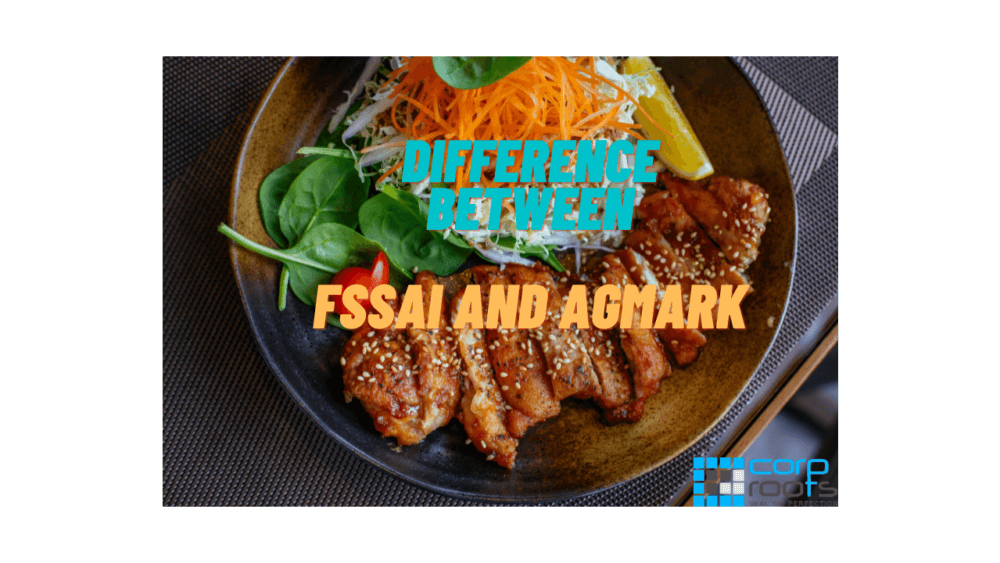Products are certified according to quality standards across industries. Actions such as the 2006 Food Safety and Standards Act, including the licensing of food products, are in place. This ensures that we eat quality, non-adulterated foodstuffs. FSSAI and AGMARK are the current standards for food goods. The distinction between the two food license standards is understandable in this text.
The production and distribution of a product in India have always been governed by a distinct statute. The Order on Vegetable Oil Products of 1947 and the Order on Dairy Products of 1992 offer instances. Several additional products have been added to this list, which makes it difficult to follow people. The changing country environment has brought about various modifications to food safety legislation and it has taken a lot of time, resources, and work to translate them into each action. A solution that placed all previous provisions dealing with food products under one roof was the Food Safety and Standards Act 2006. This integration made it much easier for individuals to keep up with this legislation and ensure that food goods do not fall within the country.
What is FSSAI?
FSSAI is the autonomous government agency of India that was established in 2008 following the regulations set out in the 2006 Food Safety and Standards Act. FSSAI stands for the Food Security and Standard Authority of India. To maintain the safety of foods consumed within the country, the main purpose of this organization is to control and monitor the quality of the food business in India. It validates and offers a basis or standard for all foodstuffs and ensures that they are safe to consume and hygienic.
The FSSAI certification operates in the same way that a control point ensures that food can be consumed safely. Each food or food processing firm, such as cold warehousing, manufacturing, distribution, and even packaging, has to conform with the rules set out in the FSSAI and have a valid Indian FSSAI license.
FSSAI features
Basic regulations that assist in the definition and enforcement of food safety standards:
- Project and management guidelines for certification agencies
- Develop policies to define the certification of food testing laboratories
- Provide the government with technical advice and help in food safety legislation matters
- Collect data on the consumption of food, health risks, pollutants, and imminent biological threats
- Develop a mechanism that provides information to people on these hazards
- Provide training for food business participants
- Encourage food safety awareness.
What is Agmark?
AGMARK is a quality certificate labeling a pure and necessary product quality following regulatory body guidelines. It serves as a guarantee for agricultural products consumed in India by third parties. The quality of the agricultural commodity is based on its intrinsic merit, and international laws and specifications are taken into consideration for the requirements of the WTO to be complied with.
AGMARK Eligible Products
- Pulses
- Whole spices
- Vegetable oils
- Wheat products
- Milk products
- Honey
- Rice
- Tapioca sago
- Seedless tamarind
- Besan (gram flour).
What’s the Difference between FSSAI and Agmark?
- The main distinction between FSSAI and AGMARK is that AGMARK is certified whereas FSSAI is a governmental food control body. AGMARK operates just for agricultural products, while FSSAI licenses include nearly all foodstuffs of agricultural origin or not. It covers all food processing stages, from production through packing.
- AGMARK fell under the Agricultural Producing (Grading and Marketing) Act, 1937, which directly affected the Food and Standard Act, 2006.
- The certification AGMARK covers chemicals, microbiological tests, and the residue of pesticides. AGMARK is only awarded to the product and not to a single farmer. From now on, 213 farm goods have been certified under AGMARK. For individual enterprises, the FSSAI License is issued. An FSSAI license is required for each branch of a fast-food restaurant business despite all branches being covered by one franchise. Three kinds of licenses are available for FSSAI: basic, State, and central.
- The Marketing and Inspection Directorate falling under the Ministry of Agriculture approves AGMARK. FSSAI is its own government agency.
Summary
Products are approved across industries in accordance with quality requirements. Including food items’ licensing, the 2006 Food Safety and Standards Act guarantees that we eat excellent, non-adulterated foods. FSSAI is India’s independent government agency. AGMARK is a quality accreditation that marks the quality of the product as pure and essential. It is a guarantee for agricultural products consumed by third parties in India.
The certification shall include chemicals, microbiological tests, and pesticide residues. For agri-food goods only, AGMARK operates, and FSSAI licenses comprise almost all food products.
GetMyCompany offers a full FSSAI registration solution and food license. GetMyCompany’s guiding principle is to make sure your food business begins as quickly and as easily as possible. Talk to one of our specialists now to learn more!

